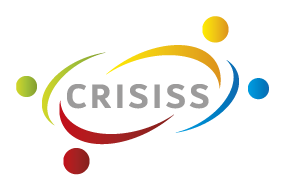Volunteering proved to be an effective learning environment in the COVID-19 crisis, especially for those people who had to realise that their professional activities were not at all systemically relevant in terms of health crisis management. Since then, many crises have shaken the world: Natural disasters, armed conflicts and new health threats. Volunteers everywhere have their part to play in managing these crises.
Strictly speaking, volunteering is a great opportunity to acquire soft skills that could then be used as an additional qualification in any professional setting. But how can a volunteer recognise these new skills? How can employers be made aware of these skills as an added value for teamwork, stress situations or intercultural tasks? This is only possible if these new soft skills are being validated. Even if the wording suggests otherwise, it is “soft skills” that can make the difference in working life.
Therefore, the overall objective of the CRISISS project was to deliver a support and guidance system to organisations that employ volunteers and to implement skills recognition systems that empower volunteers to recognise and value their personal growth in soft skills.
The CRISISS target groups
The primary target group for the CRISISS assessment and identification tools of soft skills gained in crises are organisations that employ volunteers in their daily work. The secondary target group are volunteers who can use the validation tools to visualise, document and recognise non-formally and informally acquired soft skills in the field of volunteering during a pandemic like the COVID-19 pandemic and other crises in order to increase their career opportunities as well as their personal development.

